FAUMUN Europe Delegation 2025 attending MUN Rome
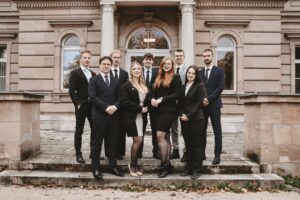
Project Director: Anabel Kummer
Project Manager: Sarah Hermann
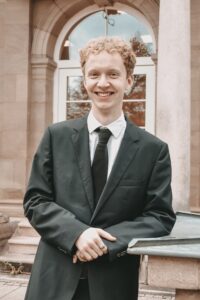 |
Lorenz Eberhard
I applied for FAUMUN because I have a strong passion for understanding the world and the mechanisms of diplomacy. In a globalized world, it is more important than ever to grasp the complex political, economic, and cultural interactions that shape international relations. Through FAUMUN, I hope to gain valuable insights into how diplomatic negotiations work and how global issues are addressed on an international stage. Additionally, I am eager to improve my skills in negotiation and public speaking. These are essential abilities not only in diplomacy but also in many other fields, and I believe that the FAUMUN experience will provide me with the opportunity to develop them in a practical, hands-on environment. Being able to present arguments clearly, listen to different perspectives, and find common ground are skills that I am keen to strengthen through this program.
|
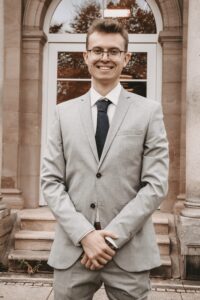 |
Yaroslav Fetysov
As a Ukrainian raised in Germany, I have witnessed how nationalism and isolationist movements are gaining strength, yet at the same time, people are drawn together in this age of modernization and technological advancements. Looking more into it, the UN’s mission to promote peace and diplomacy is now more important than ever, as countries face the temptation to turn inward in response to political, economic, and social pressures. In a world that is more interconnected through globalization, the UN serves as a major platform and crucial mediator in these turbulant times of hardships and disaster: promoting dialog, cooperation and shared solutions to challenges that transcend borders, such as climate change, security, and human rights. So while technological advancements and modernization link us globally, the rise of division and isolation requires organizations like the UN, to ensure that this interconnectedness leads to progress and not fragmentation. In the end, the UN reminds us that global cooperation is not only possible but necessary in addressing the shared challenges of our time and is key to building a more just and stable world together.
|
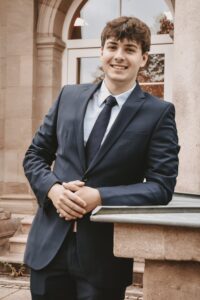 |
Raphael Justl
As someone with both French and German nationality, the United Nations hold special meaning for me. It represents the possibility of unity and cooperation, even among nations with a complex history, like France and Germany. The UN shows that despite differences, countries can come together to build a better future for everyone and overcome their past. Even further, the UN represents equality to me because it does not favor any region or conflict, it treats everyone the same and helps those in difficult situations. It provides a platform for dialogue between countries and promotes the search for common solutions to the problems facing the entire planet. Growing up with two nationalities, I see how valuable it is when different perspectives come together for a common cause.
|
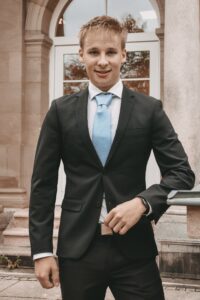 |
Elias Knörrer
The United Nations represents a collective hope for peace, security, and cooperation across borders. For me, it symbolizes the importance of nations coming together to tackle issues that are too large or complex for any one country to solve alone. Climate change, human rights, poverty, and conflict resolution require global collaboration, and the UN provides a forum for dialogue, shared responsibility, and concrete action. The UN is a cornerstone of multilateral diplomacy, where diverse nations come together to find common solutions for a more stable and equitable world. It stands as a testament to the power of collaboration, underscoring the belief that global challenges can only be effectively addressed through unity and shared commitment. The UN is not just a political entity but a promise to future generations for a more stable, just, and sustainable world.
|
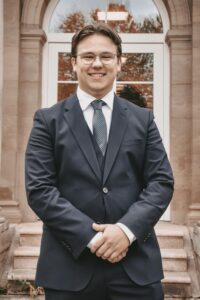 |
Mikko Klötzig
In a world that is retreating into ever more opinion bubbles while the discussion culture is rapidly declining the art of diplomacy and proper communication in a respectful manner is becoming more and more important. It does not maPer which path one has chosen at university; these skills benefit everyone everywhere. Moreover, the art of listening has vanished in many parts of society, including universities. One can learn way more from his or her opponents than from one’s friends and likeminded people in general. The world needs to again realize that an opponent does not have to automatically be an enemy. If more people were to learn the skills which are being taught at FAUMUN the world would probably be less hateful and emotionally driven.
|
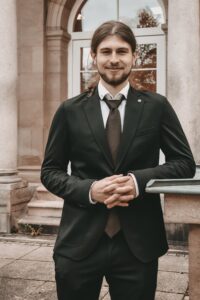 |
Jonas Lang
FAUMUN not only enhances FAU’s reputation, making it more attractive to prospective students interested in international relations and diplomacy, but it also fosters a culture of academic excellence. Furthermore, FAUMUN encourages interdisciplinary collaboration, bridging gaps between various faculties like TechFak and WiSo and fostering a more integrated academic community. Additionally, FAUMUN provides opportunities for networking with international students and professionals, expanding the university’s global reach and creating a network of future leaders who are connected to FAU. Overall, FAUMUN enriches the university experience by preparing students for global challenges and enhancing their academic profiles. This enhances the institution’s standing in the academic world, making it interesting for aspiring diplomats and scholars alike.
|
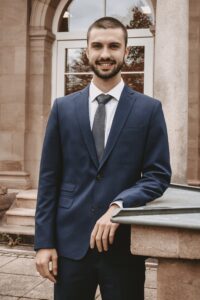 |
Marko Ninic
I applied to FAUMUN for several reasons, primarily due to the focus on diplomatic relations and social interaction, both within the delegation and during conferences with other universities and new faces. I place great value on engaging with and exchanging political opinions and perspectives with people who largely share similar interests and goals. Furthermore, the opportunity to improve one’s rhetorical and professional skills, and to showcase these on an international level in the name of the university, is, in my opinion, an exceptional chance that should not be missed. From my position, I hope to achieve personal growth, particularly in terms of my communication skills and, more generally, my confidence when addressing larger groups of people.
|
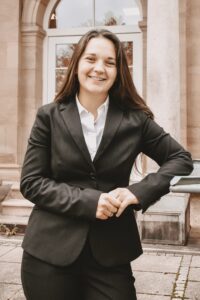 |
Julia Pechtel
The United Nations, to me, represents the most vital platform for addressing the global challenges that transcend national borders—none more pressing than climate change. As a political science student with a deep interest in international relations, I see the UN as the best chance we have to confront this existential crisis collectively. Climate change requires cooperation across countries and regions, and the UN provides a rare space where almost every nation, regardless of its size or power, has a voice. This inclusivity is particularly significant for regions like Latin America and Africa, which are often marginalized in traditional Western political frameworks. These areas will most likely be crucial in the global energy transition towards renewable energy sources. By ensuring these regions have a seat at the table, the UN helps create more equitable and effective solutions to climate change. It stands as a vital actor in shaping a more just, inclusive, and sustainable global future. |